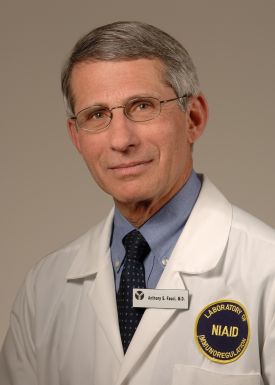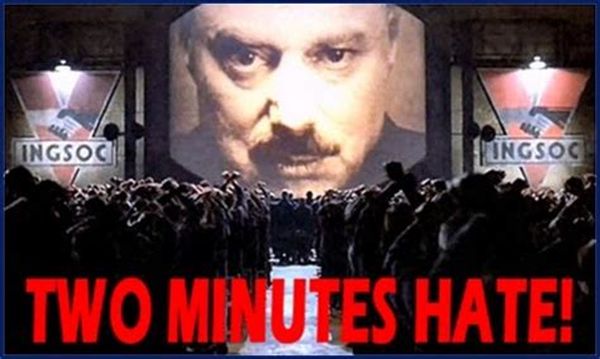After algebra
From The New CriterionAn “equation,” in case you didn’t know it, is the act of declaring two things equal or balanced — most often two mathematical propositions on either side an equal sign. As applied to the media, I suppose “equation” might be used to suggest some kind of balancing or counter-balancing operation to correct for media bias, if such a thing were ever to be possible for the media. But as used by The New York Times in “The Media Equation,” the rubric under which are published the musings of their new columnist Ben Smith, late of Buzzfeed, the word is perfectly meaningless. Ben or one of his editors must have decided that “equation” had a suitably scientific and high-brow sound and therefore was appropriate to describe the sacred mysteries of the journalistic craft, while also implying the mathematical precision that might be expected of Mr Smith’s conclusions. In other words, it’s an unintentional joke — almost as good a joke as my favorite laugh-out-loud headline of the year to date, appended to one of Mr Smith’s columns: “Trump Has Begun His Corona Campaign. We Don’t Have to Play Along,” which reserves its punch-line to the sub-head: “The coronavirus story isn’t about the president.”
Well, if it isn’t “about” him, it’s not for the lack of Mr Smith’s Times colleagues’ straining every sinew to make it about him: specifically about his many failures to deal effectively with the crisis as, it sometimes seems the media assume any proper president would have done long ago. Running Mr Smith’s piece a close second for its laughability, as well as for its lack of even the slightest vestige of self-awareness, was this little gem, to a “Political Memo” by Mark Leibovich which appeared a few days later: “Trump Turns Shared American Experiences Into Us vs. Them.” To Mr Liebovich., as to others at the Times who have written countless times of the “divisive” policies of the President, our acrimonious national division is so obviously the fault of those bastards on the other side that it never so much as occurs to him that his own dislike of them could have had anything to do with it. It’s so much a matter of course for such people to see President Trump as a merchant of hate that, like Nancy Pelosi, they’ve grown blind to their own hatreds. Or perhaps, on the now widely accepted principle that race-hatred is something only white people can be guilty of, they consider their own hatred to be no hatred at all. Because it’s theirs.
At around the same time that these articles were appearing in The New York Times, Libby Purves of the paper’s British namesake wrote a column there headed, “Admit it: amid the fear this is a hell of a story.” The “hell of a story” was, of course, the surprising coronavirus, but she thought that the British media were in danger of missing it through their obsession with criticizing their own government’s response to the virus. She should take a look at the American media! Here it’s not only not a hell of a story, it’s exactly the same story, slightly adapted to new circumstances, that they’ve been telling every day for nearly four years now. The Orange Man Bad story. Repeat it often enough, with enough different permutations, they reason, and eventually people will have to believe it — especially if the media can take the opportunity the virus affords to make the hated President’s offense appear to be not against themselves (they were always going to lose that one) but against “Science.”
Readers may remember that last month in these pages I wrote somewhat disparagingly of “science” (see “Experts in spate” in The New Criterion of May, 2020) when it is no more than a stick with which to beat the President. “Science,” as the media typically use the term, means the words of some suitably credentialed lab coat who is willing to say what the media already believe — and thus become sort-of famous. “Under Trump, coronavirus scientists can speak — as long as they mostly toe the line” thundered The Washington Post in late April — as if the media’s own favorite scientists didn’t have to toe their line in order to have their views published there. Imagine some scientific dissenter being given anything like the 2000 words occupied by a a New York Times “News Analysis” piece by Lisa Friedman and Brad Plumer headed: “Trump’s Response to Virus Reflects a Long Disregard for Science.” It’s almost as hard as it is to imagine that Times readers didn’t know about this alleged “disregard for science” already. They’ve certainly been told about it often enough.
That article’s subhead reads: “The president’s Covid-19 response has extended the administration’s longstanding practice of undermining scientific expertise for political purposes” — which you have to think about for a moment before its full oddity strikes you. Not so long ago, “undermining” was something that revolutionary subversives did (or tried to do) to legitimate authority; now, according to The New York Times, it’s the authority that’s doing the undermining — presumably because it is thought to be illegitimate. Legitimate authority can only be exercised by people like them: you know, the “experts.” Such criticisms also carry with them more than a hint of the media’s assumption, during their long but misconceived Russian “collusion” campaign (2017-19), that the President is a changeling, a false Dmitri, put into power by sinister foreign trickery in place of an inevitable, legitimate, Democratic, approved-by-Science president.
How else to explain their constant criticisms of President Trump for, in effect, acting as president himself instead of handing over the reins of power to the scientists or other experts whose opinions are constantly being cited against him? As the whole impeachment fiasco showed, the media and their Democratic allies in Congress sincerely believed that even State Department functionaries and low-level intelligence operatives were more entitled to determine American foreign policy than was the President of the United States. How could that be unless he wasn’t, in their view, the real president? If what he said offended the sense of honor or morality of these “whistleblowers,” it was obviously he and not they who had to go.
That didn’t work out so well for them, of course, but they must now have better hopes of “Science,” the reputation of which stands higher that that of either the State Department or the intelligence services and much, much higher than that of the media — which is why they need “Science” to do their criticizing for them now. And just as there is never any shortage of critics of the boss among bureaucrats or intelligence agents, neither can it ever be hard to find a scientist or other “expert” who is prepared to second-guess any politician, let alone one whom the cognitive elite look down on as they do on Mr Trump. I’m far from wishing to deny that second-guessing the president is, or should be, part of the media’s job, but the reflexivity of it during this presidency, together with the affectation of moral certainty with which their contrary views are expressed, has done more than just cast doubt on their good faith efforts to hold, as they always claim to do, power to account.
I wonder if such arrogance isn’t owing, at least in part, to the gentrification of the media. No longer are journalists mere “reporters” concerned with who-what-where-when-why; now they see themselves as intellectuals whose job it is to explain the world and make it fit the ideological template they acquire along with their education in the dogmatically uniform elite universities they all come out of. And the central tenet of that ideology is that they themselves and the clerisy of politicians and professors and professionals and artists of the ruling class they represent are the leaders and facilitators of those historical processes whose outcome is foreordained. The honor of the profession, in their view, and the justification for its place among the governing elite — whose entitlement to rule is also, by the operation of their moral algebra, what disentitles Donald J. Trump from doing so — is Intelligence. And what good is Intelligence if it can’t predict the future?
At any rate, predicting the future has lately become, as I write this in early May, the new favorite use to which “Science,” as the media see it, has been put. Needless to say, such predictions have a political purpose. Mr Trump has let it be known that he would like to end the lockdown before its effects have become quite ruinous to the economy. Very well, say the media, we shall call upon our batteries of scientists and experts to show, with their customary moral certainty, that such re-opening of the economy would have such, and such obvious, catastrophic effects that only the evil nature which we have always attributed to the president could account, even for the wish to re-open, let alone the deed itself. In the Washington Post’s view — “34 days of pandemic: Inside Trump’s desperate attempts to reopen America” — it appears equally scandalous of him to want to “reopen America” and to have failed to do it.
As it so often does, The New York Times — which might have its own reasons for wishing to see the economy in ruins — has led the way for the rest of the media. While here and there people were beginning to discuss how, when, where and why to end the lockdown, and some people in Michigan and other places were protesting against it, the Times continued to treat the whole idea of ending it as a sinister “conservative” plot to make more people sicken and die — a plot with which, you will not be surprised to learn, President Trump was colluding. “Trump Administration Signals Support for Allies’ Fight Against Virus Orders” headlined the Times at the end of April, just as if it had uncovered yet another presidential scandal. Likewise: “Conservative groups making a legal assault against state and local coronavirus restrictions are backed by the Justice Department’s willingness to ‘take action.’” A week earlier, the paper had revealed “Who’s Behind the ‘Reopen’ Protests?” (sub-head: “They are anything but spontaneous”) — and who do you think it was? None other than those same, sinister “conservatives.”
The expertise of another brace of scientists, Carl T. Bergstrom and Natalie Dean, of the University of Washington and the University of Florida respectively, was called upon by The New York Times to aver that, if the lockdown were ended prematurely, which is to say before there is a vaccine, “millions will die.” This conclusion was based on a mortality rate of 0.5 to 1 per cent of the total number infected, which is much higher than any other I have seen since the earliest ones of Professor Neil Ferguson of Imperial College, London, since revised, which led to the lockdown in the first place, but it was handed down as if to Moses on Mt Sinai. The authors conclude that “there would be nothing quick or painless about reaching herd immunity without a vaccine.” But not only does no one say that it would be quick or painless, they themselves are assuming that no amount of pain from not ending the lockdown would be too much to weigh in the balance against the “huge numbers of casualties ” they are morally certain would be the consequence of lifting those restrictions.
Perhaps it was in anticipation of so much moral and scientific certainty’s being marshaled against him that Mr Trump left the decision to reopen to state governors — who then became the target of the righteous wrath of the media. “U.S. Governors Move Ahead With Reopening, Despite Health Worries,” headlined the Times. The first and the worst of these reckless governors in the paper’s view appears to have been Governor Brian Kemp of Georgia, and the Times ran an opinion piece to echo these news stories headed “Georgia Went First. And It Screwed Up.” The article, by a Georgia doctor named Keren Landman, would seem to be suggesting that some sort of disaster had attended Governor Kemp’s easing of the lockdown in Georgia a week earlier, but there is nothing in the article to justify “screwed up,” let alone disaster — except that it was written by a scientist, with a scientist’s unquestioned right to predict and have her predictions believed. The worst that she had to allege against Governor Kemp was that “he may have set us up for a relapse.”
Someone had to go first, and Mr. Kemp isn’t the only political leader eager to reopen the country. But the ham-handed way he went about it makes Georgians of all stripes afraid of what comes next, and it leaves us wondering whether he is setting us up for a punishing new wave of infections.
As so often happens in our new, advocacy media, the hypothetical is treated as tantamount to fact, and a scientist’s predictions, if they agree with what the media think, are given the courtesy of belief just as if they had already come true.
Dr. Landman may be, as she claims to be, “a specialist in infectious diseases” as well as a journalist, but it is her journalism and not her epidemiological expertise which is at work here. For throughout this and similar articles, the Times finds it necessary to uphold the pretense that politicians are confronted with a straightforward choice between saving lives and not saving them — a choice which then easily elides with the implicit accusation that the openers are actually killing people, as it does in an article that appeared on The Atlantic website on the same day as Dr Landman’s did in the Times and that was headed: “Georgia’s Experiment in Human Sacrifice: The state is about to find out how many people need to lose their lives to shore up the economy.”
Even a merely ordinarily biased journalist — and I don’t say that Amanda Mull, the author of the article, is more biased than ordinary — would see the outrageousness of describing Georgia’s easing of the coronavirus lockdown in terms of “human sacrifice” unless she believed that “the Science” was absolutely conclusive and the book closed, not only on the likely number of deaths to result but on the relative triviality of damage to the economy, the healthcare system, general and social well-being and so on — in short, the unknown number of lives and livelihoods on the other side of the equation. As with Ben Smith’s, Ms Mull’s equation solves for its unknowns automatically, reflexively and without the need for any tiresome figuring. To her, as to “the Science,” nothing is unknown — for only thus can such people sustain their sense of moral outrage against those who don’t agree with them.
Discover more from James Bowman
Subscribe to get the latest posts to your email.







